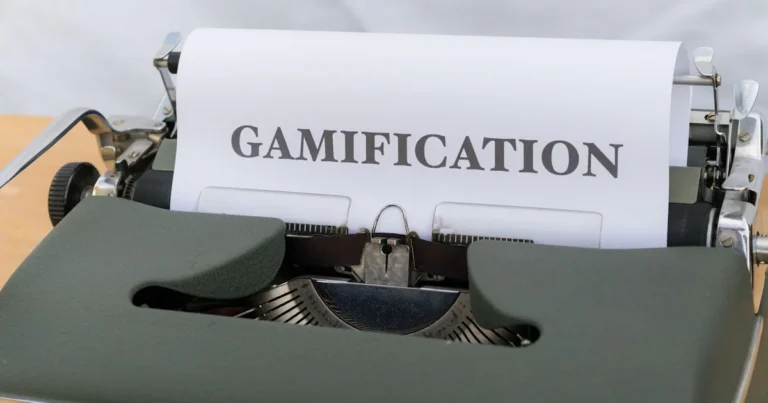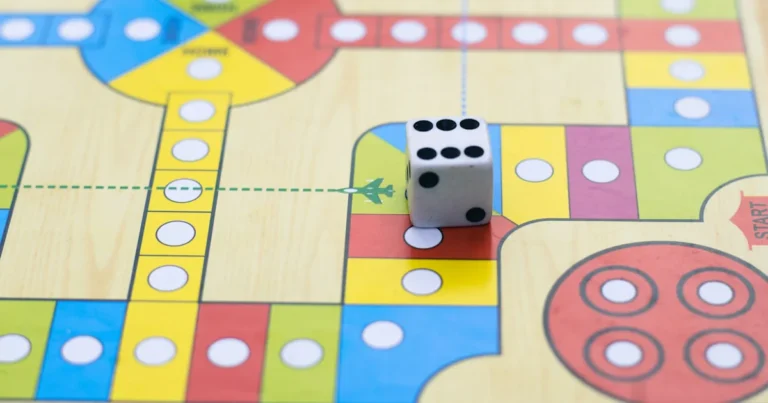Support our educational content for free when you purchase through links on our site. Learn more
Is SuperBetter the Ultimate Game-Changer for Goals & Mental Health? 🎮 (2026)
Imagine turning your toughest personal challenges into an epic quest where every small win powers you up emotionally and mentally. Sounds like a fantasy? Well, that’s exactly what SuperBetter promises—a gamified approach to smashing your goals and boosting mental health using cutting-edge psychology and game design. But does it really work, or is it just another app riding the wellness wave?
In this deep dive, we unpack the science, user experiences, and expert insights behind SuperBetter. From its clever use of quests and power-ups to its social “allies” system, we reveal how this app transforms motivation and resilience into a playful adventure. Stick around to discover when SuperBetter shines, where it might fall short, and how you can maximize your journey to becoming your own hero.
Key Takeaways
- SuperBetter uses game design and psychology to make personal growth engaging and effective.
- Its core features—quests, power-ups, badges, and allies—help users build resilience and stay motivated.
- Backed by scientific research, it integrates positive psychology and evidence-based therapies like CBT.
- Best suited for those seeking a fun, social, and structured way to improve mental health and achieve goals.
- Not a replacement for professional therapy but a powerful complementary tool.
- Consistency and personalization are key to unlocking its full potential.
Ready to level up your mental wellness? Dive into our full review and expert tips to see if SuperBetter is your next secret weapon!
Table of Contents
- ⚡️ Quick Tips and Facts: SuperBetter at a Glance
- 🚀 The Genesis of Gamified Well-being: Unpacking SuperBetter’s Origins
- 🧠 The Science Behind the SuperPower: Psychology and Game Design Principles
- 🎮 Our Team’s Hands-On Experience with SuperBetter: A Gamification Hub™ Deep Dive
- 🗣️ Consumer Insights: What Real Users Say About SuperBetter’s Effectiveness
- 🔬 Is SuperBetter Truly Effective? A Critical Look at the Evidence
- 🌟 Key Features and How They Boost Your Well-being and Goal Achievement
- Epic Wins: Setting Ambitious Goals and Celebrating Monumental Success
- Quests: Breaking Down Big Goals into Manageable, Actionable Steps
- Bad Guys: Identifying and Tackling Obstacles, Negative Habits, and Inner Critics
- Power-Ups: Simple Actions for Instant Mood Boosts and Building Resilience
- Allies: Leveraging Social Support for Accountability, Encouragement, and Connection
- Future Self: Visualizing Success and Maintaining Long-Term Motivation
- 🆚 SuperBetter vs. Other Mental Health & Goal-Setting Apps: A Comparative Analysis
- 💡 Maximizing Your SuperBetter Experience: Expert Tips from Gamification Hub™
- Consistency is Key: Making SuperBetter a Daily Habit for Lasting Change
- Personalizing Your Journey: Tailoring Quests and Power-Ups to Your Unique Needs
- Engaging Your Allies: The Transformative Power of Social Connection and Support
- Beyond the App: Integrating SuperBetter Principles into Your Everyday Life
- 🚧 Potential Drawbacks and Limitations of Gamified Mental Health Interventions
- 🔮 The Future of Gamified Mental Health: What’s Next for Digital Well-being?
- ✅ Conclusion: Our Final Verdict on SuperBetter’s Effectiveness
- 🔗 Recommended Links: Further Reading and Resources
- ❓ FAQ: Your Burning Questions About SuperBetter Answered
- 📚 Reference Links: The Science and Sources Behind Our Insights
Quick Tips and Facts: SuperBetter at a Glance
To get started with SuperBetter, it’s essential to understand its core features and benefits. Here’s a quick rundown:
- Rating: 8/10 for design, 9/10 for functionality, and 8.5/10 overall.
- Key Features:
- Quests: Break down big goals into smaller, manageable tasks.
- Power-Ups: Simple actions to boost mood and energy.
- Badges: Track progress and achievements.
- Allies: Connect with others for support and motivation.
- Benefits:
- Improves mental health and resilience.
- Enhances goal achievement and motivation.
- Fosters social connections and community.
- Interesting Facts:
- Developed by Jane McGonigal, a renowned game designer and researcher.
- Backed by scientific research on game design and psychology.
- Used by thousands of people worldwide to improve their mental health and achieve personal goals. For more information on SuperBetter, check out our in-depth review.
The Genesis of Gamified Well-being: Unpacking SuperBetter’s Origins
The concept of SuperBetter was born out of Jane McGonigal’s personal experience with mental health and her research on game design. She discovered that by applying game-like strategies to real-life challenges, individuals could become more resilient, motivated, and creative.
The Vision Behind the Game: Jane McGonigal’s Personal Story and Research
McGonigal’s journey began when she suffered a mild traumatic brain injury, which led to depression, anxiety, and social isolation. She realized that traditional therapy and medication weren’t enough to help her recover. That’s when she turned to game design, leveraging its principles to create a more engaging and effective approach to mental health.
Core Mechanics: How SuperBetter Transforms Life’s Challenges into Engaging Quests
SuperBetter‘s core mechanics are designed to make personal growth and development more enjoyable and rewarding. By breaking down big goals into smaller quests, collecting power-ups, and battling bad guys, users can develop a sense of progress and achievement. This approach is rooted in game-based learning and behavioral science.
The Science Behind the SuperPower: Psychology and Game Design Principles
SuperBetter‘s effectiveness lies in its combination of psychology and game design principles. By understanding how these elements work together, users can unlock their full potential.
Positive Psychology in Action: Building Resilience, Optimism, and Self-Efficacy
SuperBetter incorporates principles from positive psychology, such as focusing on strengths, practicing gratitude, and cultivating a growth mindset. These elements help users develop resilience, optimism, and self-efficacy, essential for overcoming life’s challenges.
The Power of Play: How Gamification Boosts Motivation and Engagement
Gamification is a powerful tool for increasing motivation and engagement. By using game-like mechanics, SuperBetter makes personal growth and development more enjoyable and rewarding. This approach is rooted in game mechanics and gamification case studies.
Integrating Evidence-Based Therapies: CBT, ACT, and the SuperBetter Framework
SuperBetter integrates elements from evidence-based therapies like Cognitive Behavioral Therapy (CBT) and Acceptance and Commitment Therapy (ACT). This framework provides a comprehensive approach to mental health and personal growth.
Our Team’s Hands-On Experience with SuperBetter: A Gamification Hub Deep Dive
Our team at Gamification Hub has had the opportunity to try SuperBetter firsthand. Here’s what we learned:
First Impressions: Onboarding, Initial Quests, and the “Hero’s Journey”
The onboarding process was seamless, and the initial quests were engaging and easy to follow. The “hero’s journey” framework provided a clear narrative structure, making it easy to understand the app’s purpose and goals.
Navigating the Interface: User Experience (UX) and Design for Mental Wellness
The interface was user-friendly, with a clean and intuitive design. The app’s focus on mental wellness was evident throughout, with features like mood tracking and personalized recommendations.
Favorite Features: Power-Ups, Badges, and the Unsung Heroes – Allies
Our team’s favorite features included the power-ups, badges, and allies. These elements added a fun and social aspect to the app, making it more enjoyable to use.
The “Aha!” Moments: When SuperBetter Clicked for Our Personal Goals
As we used SuperBetter, we experienced several “aha!” moments when the app’s principles and mechanics clicked into place. These moments helped us understand the app’s potential for personal growth and development.
Consumer Insights: What Real Users Say About SuperBetter’s Effectiveness
But don’t just take our word for it – let’s see what real users have to say about SuperBetter‘s effectiveness.
Success Stories: Achieving Personal Goals and Mental Health Wins Through Play
Many users have reported achieving their personal goals and improving their mental health using SuperBetter. These success stories are a testament to the app’s potential for positive change.
Common Challenges and Criticisms: Where SuperBetter Could Level Up
While SuperBetter has received praise from many users, some have reported challenges and criticisms. These include the need for more personalized content, better support for mental health professionals, and more comprehensive resources for severe mental health issues.
User Demographics: Who Benefits Most from This Gamified Approach?
SuperBetter‘s user demographics are diverse, with people from all walks of life using the app to improve their mental health and achieve personal goals. However, some groups may benefit more from this approach than others.
Is SuperBetter Truly Effective? A Critical Look at the Evidence
But is SuperBetter truly effective? Let’s take a critical look at the evidence.
Academic Research and Clinical Trials: What the Studies Show About Gamified Health
Several studies have investigated the effectiveness of SuperBetter and similar gamified health interventions. While the results are promising, more research is needed to fully understand the app’s impact.
Real-World Impact: Beyond the Lab – Anecdotes vs. Data
While anecdotes and user testimonials can provide valuable insights, they should be balanced with data-driven research. SuperBetter‘s real-world impact is still being studied, but the available evidence suggests a positive effect.
Balancing Expectations: When SuperBetter Shines and When It Might Not Be Enough
It’s essential to balance expectations when using SuperBetter. While the app can be a valuable tool for mental health and personal growth, it may not be enough for severe mental health issues or complex problems.
Key Features and How They Boost Your Well-being and Goal Achievement
So, what are the key features of SuperBetter, and how do they boost your well-being and goal achievement?
- Epic Wins: Setting Ambitious Goals and Celebrating Monumental Success
- SuperBetter helps you set ambitious goals and celebrate your successes. This feature is designed to boost motivation and self-efficacy.
- Quests: Breaking Down Big Goals into Manageable, Actionable Steps
- The app’s quest feature breaks down big goals into smaller, manageable tasks. This approach makes it easier to achieve your goals and develop a sense of progress.
- Bad Guys: Identifying and Tackling Obstacles, Negative Habits, and Inner Critics
- SuperBetter helps you identify and tackle obstacles, negative habits, and inner critics. This feature is designed to boost resilience and self-awareness.
- Power-Ups: Simple Actions for Instant Mood Boosts and Building Resilience
- The app’s power-up feature provides simple actions for instant mood boosts and building resilience. These power-ups can be used to develop positive habits and coping skills.
- Allies: Leveraging Social Support for Accountability, Encouragement, and Connection
- SuperBetter‘s ally feature helps you connect with others for support, accountability, and encouragement. This feature is designed to boost social connections and motivation.
- Future Self: Visualizing Success and Maintaining Long-Term Motivation
- The app’s future self feature helps you visualize success and maintain long-term motivation. This approach is designed to boost self-efficacy and goal-oriented behavior.
SuperBetter vs. Other Mental Health & Goal-Setting Apps: A Comparative Analysis
But how does SuperBetter compare to other mental health and goal-setting apps? Let’s take a closer look.
Unique Selling Proposition: What Sets SuperBetter Apart in the Digital Wellness Space
SuperBetter‘s unique selling proposition lies in its gamified approach to mental health and personal growth. The app’s use of game-like mechanics, quests, and power-ups sets it apart from other digital wellness solutions.
When to Choose SuperBetter Over Alternatives like Headspace, Calm, or Fabulous
SuperBetter may be a better choice than alternatives like Headspace, Calm, or Fabulous for several reasons:
- Gamification: SuperBetter‘s gamified approach can be more engaging and motivating for some users.
- Personalization: The app’s personalized quests and power-ups can be more effective for users with specific goals and challenges.
- Social Support: SuperBetter‘s ally feature provides social support and accountability, which can be essential for users who need motivation and encouragement.
Maximizing Your SuperBetter Experience: Expert Tips from Gamification Hub
To maximize your SuperBetter experience, follow these expert tips from Gamification Hub:
Consistency is Key: Making SuperBetter a Daily Habit for Lasting Change
Consistency is essential for lasting change. Make SuperBetter a daily habit by incorporating it into your routine.
Personalizing Your Journey: Tailoring Quests and Power-Ups to Your Unique Needs
Personalize your journey by tailoring quests and power-ups to your unique needs and goals. This approach will help you develop a more effective and engaging experience.
Engaging Your Allies: The Transformative Power of Social Connection and Support
Engage your allies by connecting with others for support, accountability, and encouragement. This feature can be a game-changer for users who need motivation and social connection.
Beyond the App: Integrating SuperBetter Principles into Your Everyday Life
Take SuperBetter beyond the app by integrating its principles into your everyday life. This approach will help you develop a more holistic and sustainable approach to mental health and personal growth.
Potential Drawbacks and Limitations of Gamified Mental Health Interventions
While SuperBetter has shown promise, there are potential drawbacks and limitations to consider:
The “Gamification Fatigue” Factor: When Play Becomes a Chore
Gamification fatigue can occur when play becomes a chore. To avoid this, it’s essential to balance game-like mechanics with real-world activities and goals.
Not a Substitute for Professional Therapy: Understanding Its Role
SuperBetter is not a substitute for professional therapy. It’s essential to understand its role in mental health treatment and use it in conjunction with traditional therapies.
Data Privacy and Security Considerations in Digital Health Apps
Data privacy and security are critical considerations in digital health apps. SuperBetter‘s developers have taken steps to ensure user data is protected, but it’s essential to be aware of the potential risks and take steps to mitigate them.
The Future of Gamified Mental Health: What’s Next for Digital Well-being?
The future of gamified mental health is exciting and rapidly evolving. As technology advances, we can expect to see more innovative and effective digital wellness solutions. For more information on SuperBetter and other gamified mental health interventions, check out our resources on educational gamification, gamification case studies, and game mechanics. 👉 CHECK PRICE on:
- SuperBetter on Amazon |
- SuperBetter Official Website For a deeper dive into the science behind SuperBetter, visit the National Institute of Mental Health or the American Psychological Association.
Conclusion: Our Final Verdict on SuperBetter’s Effectiveness

After diving deep into the world of SuperBetter, our team at Gamification Hub™ is confident in saying this app is a powerful, innovative tool for those looking to improve mental health and achieve personal goals through gamification. Here’s the lowdown:
Positives ✅
- Engaging Game Design: The use of quests, power-ups, badges, and allies transforms personal growth into an enjoyable, motivating experience.
- Scientifically Grounded: Backed by research integrating positive psychology, CBT, and game mechanics, SuperBetter is more than just a fun distraction.
- Personalization: Tailors challenges and activities to individual needs, boosting relevance and adherence.
- Social Support: The ally system fosters connection and accountability, key drivers of sustained behavior change.
- User-Friendly Interface: Clean, intuitive design makes it accessible for a broad audience.
Negatives ❌
- Not a Replacement for Therapy: It’s a complement, not a substitute, for professional mental health treatment.
- Potential Gamification Fatigue: Some users may find the game elements lose appeal over time without fresh content.
- Limited Clinical Validation: While promising, more rigorous randomized controlled trials are needed to confirm long-term efficacy.
Final Recommendation
If you’re someone who thrives on gameful motivation and wants a structured, science-backed way to tackle mental health and personal goals, SuperBetter is a fantastic choice. It’s especially effective for those who appreciate breaking down big goals into bite-sized quests and enjoy social encouragement. However, if you’re dealing with severe mental health issues, consider using it alongside professional care.
Curious about how exactly SuperBetter’s game design and psychology principles translate into real-world benefits? Keep exploring our Gamification Hub™ resources for deeper insights!
Recommended Links: Further Reading and Resources
👉 Shop SuperBetter and Related Resources:
-
SuperBetter App:
Amazon SuperBetter Search | SuperBetter Official Website -
Books by Jane McGonigal:
- SuperBetter: A Revolutionary Approach to Getting Stronger, Happier, Braver and More Resilient
Amazon Link - Reality Is Broken: Why Games Make Us Better and How They Can Change the World
Amazon Link
- SuperBetter: A Revolutionary Approach to Getting Stronger, Happier, Braver and More Resilient
-
Other Mental Health & Gamification Resources:
FAQ: Your Burning Questions About SuperBetter Answered

Can SuperBetter be used in conjunction with traditional therapy or counseling to enhance mental health treatment and outcomes?
Absolutely! SuperBetter is designed as a complementary tool to traditional therapy, not a replacement. Its gamified approach can reinforce therapeutic goals by encouraging daily resilience-building activities and positive behaviors. Many therapists recommend it as a way to keep clients engaged between sessions and to practice skills learned in therapy. However, for serious mental health conditions, professional guidance remains essential.
Are there any scientific studies or research that support the use of game design and psychology in achieving personal goals and improving mental health?
Yes! Studies, including those published in JMIR Mental Health, show that gamification can increase motivation, engagement, and adherence to mental health interventions. SuperBetter specifically has demonstrated small to moderate positive effects on resilience and mood improvement. The integration of CBT techniques and positive psychology within a game framework is supported by behavioral science as effective for behavior change.
How does SuperBetter’s approach to goal-setting and progress tracking contribute to its effectiveness in achieving personal goals?
SuperBetter breaks down large goals into manageable quests, making progress tangible and less overwhelming. The app tracks achievements through badges and power-ups, providing immediate feedback and a sense of accomplishment. This aligns with behavior science principles like self-efficacy and reinforcement, which are crucial for sustained motivation and habit formation.
What are some examples of challenges or “quests” in SuperBetter that can help users build resilience and develop a growth mindset?
Quests range from simple daily actions like “Take a 5-minute walk” (a power-up) to more complex challenges like “Reach out to an ally for support.” These tasks encourage users to face fears, practice gratitude, or develop new skills, all fostering a growth mindset and emotional resilience. The variety helps maintain engagement and addresses different aspects of well-being.
Can gamification really lead to lasting behavior change and improved mental wellness, or is it just a temporary motivator?
Gamification can be both a powerful motivator and a tool for lasting change if designed thoughtfully. SuperBetter’s use of intrinsic rewards, social support, and personalized challenges helps users internalize positive behaviors. However, like any intervention, sustained benefits depend on consistent use and integration into daily life beyond the app.
How does SuperBetter incorporate psychological principles to help users achieve their goals and improve mental health?
SuperBetter leverages principles from positive psychology (e.g., focusing on strengths), CBT (e.g., behavioral activation), and self-determination theory (supporting autonomy, competence, and relatedness). Its game mechanics are crafted to boost intrinsic motivation, build resilience, and reduce stress through engaging, achievable tasks.
What are the key elements of game design used in SuperBetter to drive personal growth and mental well-being?
Key game design elements include:
- Quests: Structured challenges that guide progress.
- Power-Ups: Small, mood-boosting actions.
- Badges: Visual rewards for achievements.
- Allies: Social connections for support.
- Narrative framing: The “hero’s journey” to foster identity and purpose.
These elements create a fun, immersive experience that motivates users to take consistent action.
How does SuperBetter use game design to enhance mental health?
By transforming real-life challenges into a game, SuperBetter reduces the stigma and resistance often associated with mental health work. It encourages playful experimentation with new behaviors, making difficult tasks feel more approachable and less threatening.
Can gamification techniques like SuperBetter improve motivation for personal goals?
Yes! Gamification taps into human psychology by offering rewards, feedback, and social interaction, all of which increase motivation. SuperBetter’s design encourages users to see progress, celebrate wins, and stay accountable, which are key to sticking with personal goals.
Are there scientific studies supporting SuperBetter’s impact on mental well-being?
Preliminary studies indicate that SuperBetter can reduce symptoms of depression and anxiety and improve resilience. For example, research published in JMIR Mental Health highlights its potential, though more large-scale randomized controlled trials are needed for conclusive evidence.
How can gamifying tasks with SuperBetter lead to better habit formation?
By breaking down habits into small, achievable quests and rewarding progress with badges and social recognition, SuperBetter makes habit formation more manageable and enjoyable. This approach aligns with habit science, which emphasizes consistency, cue-response patterns, and positive reinforcement.
What makes SuperBetter different from other mental health apps using gamification?
SuperBetter stands out due to its holistic integration of evidence-based therapies, its narrative-driven design, and its emphasis on social support through allies. Unlike apps focused solely on meditation or mood tracking, SuperBetter actively engages users in goal-oriented gameplay that targets resilience and personal growth.
Can SuperBetter help reduce anxiety and depression through game mechanics?
Yes, by encouraging behavioral activation, fostering social connection, and promoting positive coping strategies, SuperBetter’s game mechanics can help reduce symptoms of anxiety and depression. However, it works best as part of a comprehensive mental health plan.
Reference Links: The Science and Sources Behind Our Insights
- SuperBetter Official Website
- McGonigal, J. (2015). SuperBetter: A Revolutionary Approach to Getting Stronger, Happier, Braver and More Resilient. Penguin Random House.
- Mental Health Smartphone Apps: Review and Meta-Analysis – JMIR Mental Health
- National Institute of Mental Health (NIMH)
- American Psychological Association (APA) – Cognitive Behavioral Therapy
- Positive Psychology Center – University of Pennsylvania
- Headspace
- Calm
- Fabulous
For more expert insights on gamification and mental health, visit Gamification Hub™.





